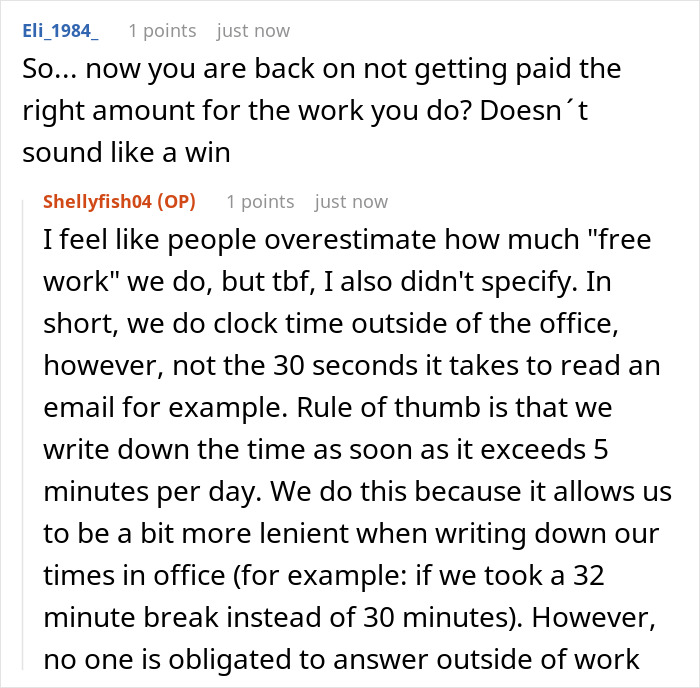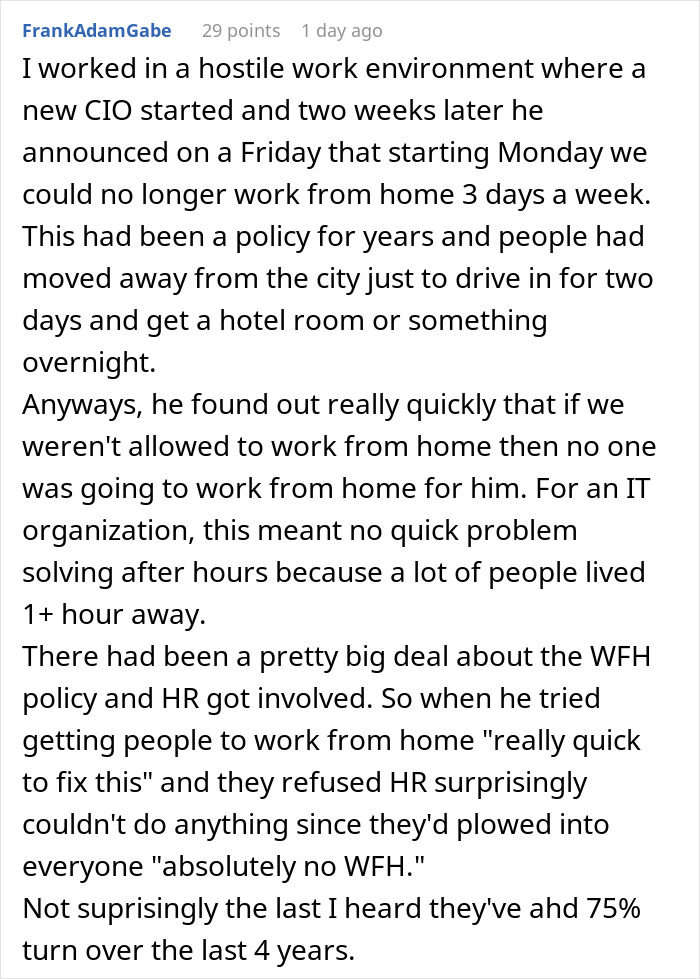This one bossdecided that his employees needed to avoid manipulating timesheets and has thus decided to implement a time-tracking tool with certain rules in place. Little did he know, however, that one of his teams was crafty and cunning and, hence, went with malicious compliance, conforming to the letter but not the spirit of the instructions.
Tracking time at work can be a bit of a pain, but it only becomes worse when micromanaging is introduced into the mix
![]()
Image credits:Jonathan Borba (not the actual photo)
This boss decided there will be no more time manipulation—there never was—so his team responded with malicious compliance
![]()
Image credits:fauxels (not the actual photo)
![]()
![]()
![]()
![]()
Image credits:ANTONI SHKRABA production (not the actual photo)
Image credits:Shellyfish04
Needless to say, malicious compliance always wins, and the boss eventually ended up scrapping the idea
![]()
Image credits:ELEVATE (not the actual photo)
The story goes that a bit of a micromanaging boss decided to eliminate “time manipulation”—something that was never a thing to begin with—and instituted a system for tracking time. It was a convoluted system, which caused more problems than it solved.
Folks online approved of the so-calledmutiny. In fact, it felt so smooth and clean that some called it a great team-building exercise. A number of folks also noted that it wasn’t the team “exploiting” the system, as OP mentioned, but rather, doing exactly as told—it was the boss who had to learn not to exploit his employees.
Don’t get it wrong—time tracking can be an effective tactic for a number of reasons, but it has to be done right
![]()
Image credits:Yuliana Kungurova (not the actual photo)
It goes without saying that prompting for time-tracking software is key in maximizing efficiency, all while minimizing the frustration of keeping track of time. Pen and paper are not a bad idea, but remember, we’re human.
So, once that’s settled, there seems to be one overarching theme among the numerousguidelines for timekeeping out there. And that isto be reasonable. Don’t track every little thing—only do it if it exceeds 15 minutes; not every time-entry needs added info—that’s called micromanaging; approximate time if you forget to start or stop tracking—adapt it manually to what seems realistic and reasonable, and move on. It happens.
Ultimately, keep things simple. It might sound counter-intuitive, but having a simple process of keeping time might just end up being more accurate than the complicated option. And if you need more justification, “don’t fix what ain’t broke”should always be a good guideline to follow.
Remember that time trackers are supposed to do more than justtrack time. They double as performance and professional self-reflection tools. They are supposed to provide the employees with insights into what work is really like and how to adjust their work processes accordingly. Making it complicated only takes away from achieving better goals and essentially negates the very thing that makes time trackers effective.
With that said, we’d love to hear what you think about tracking time at work, OP’s malicious compliance, or anything else discussed in this article. Share your takes and stories in the comment section below!
The author of the post specified one of the tinier details regarding how much “overtime” there really was

Folks in the Reddit community loved the malicious compliance, giving the post 9K upvotes and praising for a job well done

![]()

![]()


![]()






Thanks! Check out the results:Justinas Keturka
Gabija Saveiskyte
Indrė Lukošiūtė
Work & Money